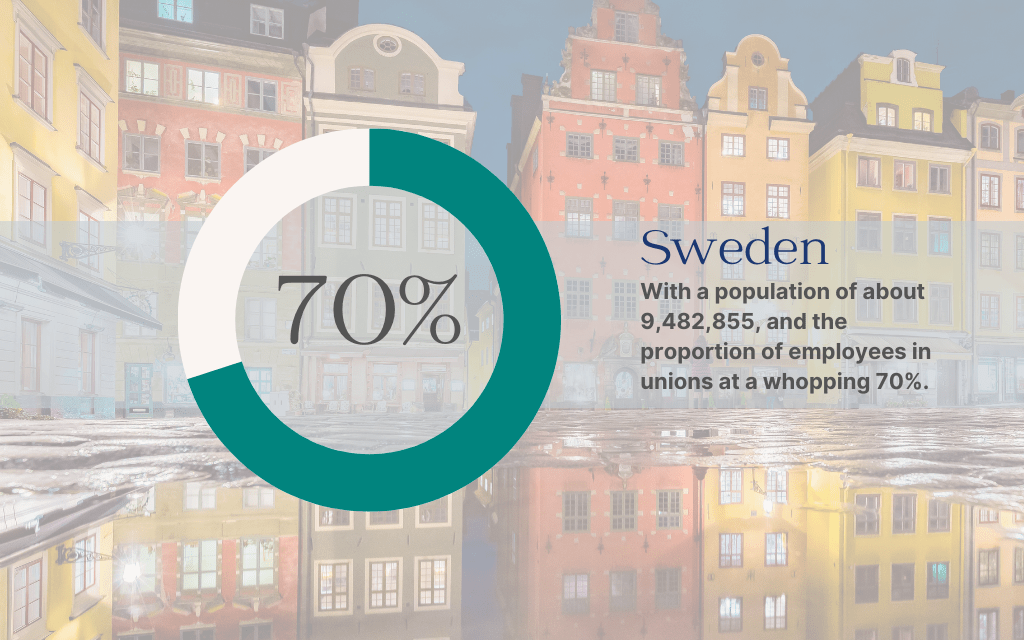We often read about what countries have a high quality of life, happiness, life expectancy and the lists go on. Of course, we need to factor in the necessities in a modern society like access to food, housing, quality education, health care and employment.
But what else could determine if a population considers their life to be a very good one? Intangibles such as job security, political stability, individual freedom and environmental quality can be used to rank quality of life amongst countries. In a nutshell, from cradle to grave, countries at the top of the satisfaction list are seen as treating their citizens well.
It is not surprising that countries at the top of the list for quality of life are also at the top of the list for union density.
Countries with high trade union membership are more equal. Nordic countries have the highest rates of union membership and the lowest income inequality.
Sweden, amongst other Nordic countries like Iceland, Denmark and Norway, has the second largest union membership in the world as well as being in the top echelons of quality-of-life surveys.
Like other Nordic countries, Sweden is heavily capitalistic with large portions of it’s spending going to public services with an array of modern infrastructure and transportation networks assisting with wealth distribution. Secondary education and health care are free, most rubbish is recycled and its people have one of the longest life expectancies in the world.
- So what about Sweden’s labour market? Almost seven out of ten workers in the Swedish labour market are union members, the second highest unionisation rate in the world after Iceland.
- With a population of about 9,482,855, the union collective bargaining coverage is around 88% of workplaces with the proportion of employees in unions at a whopping 70%. Well above the international level.
One of the largest unions in Sweden is Unionen. Unionen is Sweden’s largest trade union in the private labour market and the largest white-collar trade union in the world. They have 700 000 members, of which 29 000 are elected representatives, in more than 89 000 companies and organisations.
Unionen’s website states that: All of the white-collar workers at a workplace in the private sector can be members of Unionen irrespective of their position, educational background or level of pay. Some of the more common professions found among our members include Project Managers, Engineers, Administrators, Economists, IT Consultants, Technicians, Managers and Salespeople.
With correlations between quality of life and union density, we can assume that they both go hand in hand, so let’s spread the word to join a union for a better quality of life.


